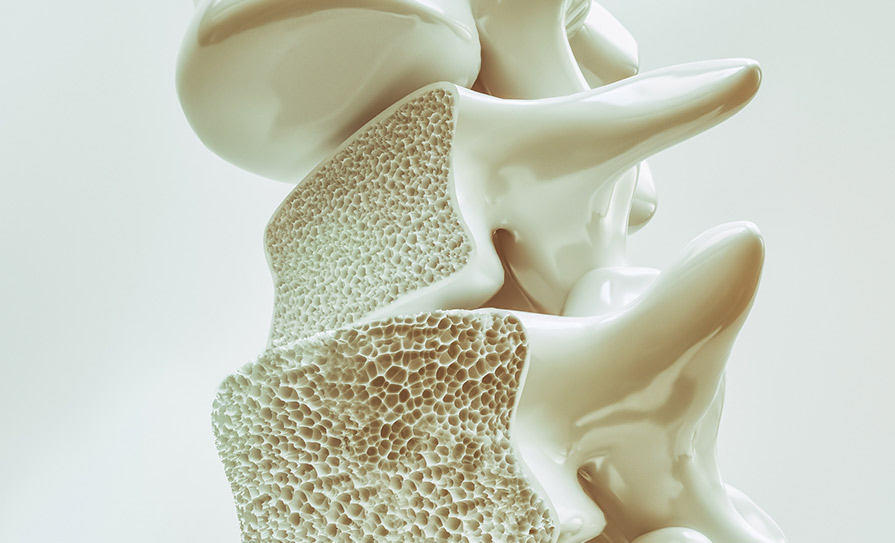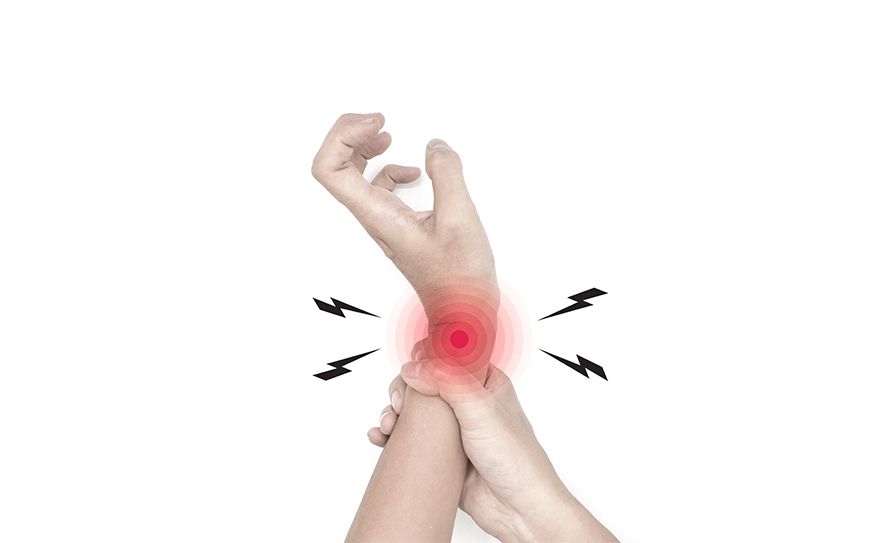Significant advances have been made in recent years in terms of disease-modifying treatment of multiple sclerosis (MS). A large number of new treatments are now available, which can prevent clinical relapses, new lesions on imaging, and as evidence suggests, significantly delay time to progressive disease. However, treatments frequently only have a minimal effect on the broad range of existing symptoms affecting patients and have no role in progressive MS. As people with long-standing MS and significant disability have difficulty attending outpatient appointments, they often turn to local practitioners for help. Fatigue, spasticity, pain, urinary difficulty, sexual dysfunction, depression, anxiety, mobility problems and cognitive difficulties are all common in MS — even people who are physically well can have hidden symptoms associated with the condition. The following fictionalised cases represent the typical symptoms we frequently see in clinic.
Case report 1
C, a 33-year-old software developer, has had MS for five years and is clinically and radiologically stable on dimethyl fumarate. At her outpatient appointment, she complains of severe fatigue that is limiting her life outside work.
Fatigue is one of the commonest and most devastating symptoms that affects people with MS, even in those with minimal physical disability. Treatment can be challenging and often has a limited impact on the symptoms. Careful evaluation of fatigue is a good starting point. In the history, establish if the patient is getting restful sleep overnight — people with MS often have nocturia, visiting the toilet multiple times per night, with subsequent impact on sleep. Sleep may also be impacted by spasticity or pain — again, these should be treated in the first instance. Comorbid conditions that are more frequent in MS, such as sleep apnoea and thyroid dysfunction, should be considered.
Multiple previous studies have demonstrated a strong correlation between depression and fatigue. Depending on the clinical situation, careful evaluation of mood and treatment, if necessary, may be appropriate. Fatigue management has a three-pronged approach — education, exercise and medication. In a recent review article, studies using exercise for fatigue management had the most positive outcome — aquatics, climbing and resistance training were all highlighted. Education-based interventions, including mindfulness and cognitive behavioural therapy (CBT), are also beneficial. Pharmacological intervention trials demonstrated the smallest effect size. Modafinil and amantadine are both prescribed for MS patients, but the evidence is weak and inconclusive. Clinically, only a small proportion of patients have a significant improvement in fatigue with these medications. Patients are counselled carefully regarding potential side-effects, such as insomnia, aggravation of mood symptoms. A trial of medication may be warranted, but a plan for discontinuation should be made if no benefit is demonstrated.
Case report 2
M, a 42-year-old accountant, has had MS for 15 years. He is clinically and radiologically stable on fingolimod, but has had spinal cord relapses earlier in the course of his condition. M complains that he has had some difficulty getting to sleep at night, as his right leg will painfully lock or spasm. This can also occur if he’s been sitting in the same position in work for a while.
At the same clinic is B, a 55-year-old who was diagnosed 18 years ago and has progressive MS and is no longer able to walk unaided. B has severe stiffness affecting her limbs, which is making it more difficult to transfer and manage her activities of daily living independently.
Spasticity results from damage to the upper motor neurones of the corticospinal tracts and affects about 34 per cent of people with MS. It is characterised by increased muscle tone and weakness, pain and sudden involuntary movements (spasms). If severe, contractures can occur. Spasticity can worsen in the context of illness, such as urinary tract infections. Optimum management requires a multidisciplinary team, including a nurse, physiotherapist, neurologist and rehabilitation consultant. This would involve a combination of non-pharmacological and pharmacological approaches. Mild spasticity can be managed with physiotherapy initially and use of a single medication. A recent review of this field evaluated the medication treatment options. Centrally-acting medications such as baclofen, a GABA analogue, and tizanidine, a short-acting muscle relaxant, are good first-line options. Tizanidine is more commonly associated, however, with elevated hepatic transaminases. Doses should be commenced at low levels and titrated slowly, to a maximum of 100mg of baclofen and 36mg of tizanidine. Much lower doses are often therapeutic at an early stage. Side-effects include drowsiness, weakness and dry mouth.
Gabapentin can be considered as a second-line medication. However, it is often required at higher doses of 2,700-3,600mg daily to have a therapeutic effect.
Nabiximols is an oromucosal spray of cannabis extract containing THC and CBD. It is not currently available in Ireland. Therapy usually involves a titration period leading up to max of 12 sprays per day dosing. There is class one evidence as to the efficacy of this agent, particularly as an add-on therapy. However, only about 50 per cent of people are responders to the medication, so close monitoring is required in the initial treatment period. Side-effects include dizziness and worsening cognitive function.
If spasticity is isolated to a single limb, referral for botulinum toxin injection can be beneficial. For patients with more severe symptoms of generalised spasticity, who are not responding to increased dosing of anti-spasmodic medication, an intrathecal baclofen pump can be considered. This allows much higher concentrations in the spinal fluid whilst minimising potential side-effects. Prior to implantation, the patient requires admission for assessment of the effects of baclofen through an intrathecal catheter.
Studies have shown efficacy, but careful patient selection is key, given the potential for surgical morbidity and pump-related complications.
Case report 3
S is a 52-year-old company director with a 20-year history of MS. Her walking has deteriorated in recent years and she mobilises using an aid. She attends a clinic and mentions that she is having a lot of difficulty with urinary symptoms. She has to rush to get to the toilet and doesn’t always get there on time. Her fatigue is also worse — she has to get up two-to-three times at night to urinate, and finds it difficult to get back to sleep. She has not recently had a urinary tract infection.
Up to two-thirds of people with MS will experience moderate-to-severe urinary dysfunction over the course of the disease. Symptoms are rarely present at diagnosis, but approximately 50 per cent are affected at 18 years. Commonest symptoms are suggestive of lower urinary tract dysfunction and include urgency, frequency, incontinence, hesitancy and retention. Upper urinary tract dysfunction is uncommon in MS. Cortical lesions of the medial prefrontal cortex, insula and pons can impact on urinary tract regulation and result in detrusor over-activity. Spinal cord lesions can also have a similar impact, as they can cause damage to the descending inhibitory tracts. Urinary symptoms have a significant impact on quality of life and can result in severe fatigue and social isolation.
Comorbidities, such as stress incontinence from pelvic floor dysfunction related to childbirth and benign prostatic hypertrophy, can aggravate existing symptoms. Studies have suggested that they are under-treated, partly due to lack of knowledge of most effective medications.
In making clinical decisions, treatment should be chosen according to patient mobility, disease phase, manual dexterity, social support, comorbidities and symptoms. The focus should be on improving quality of life by reducing incontinence, improving bladder emptying and avoiding urinary tract infections. Behavioural therapy, such as pelvic floor muscle training, may be beneficial in a small cohort of patients with mild symptoms. If symptoms are suggestive of retention, double-voiding and timely voiding may allow proper emptying. Assessment of post-void residual at least, and full urodynamics testing, is generally advised prior to proceeding to pharmacotherapy.
Anticholinergics are a commonly-used first-line medication for detrusor over-activity in MS. Oxybutynin, solifenacin, trospium and tolterodine have all shown positive results in clinical trials. However, anticholinergics can be problematic and can cause potential aggravation of cognitive impairment and drowsiness. Mirabegron is also commonly prescribed, with a less marked side-effect profile.
Alpha blockers may be considered for patients with detrusor underactivity, but the evidence in MS patients is sparse. No pharmacological agents selectively relax the external urinary sphincter.
Botulinum toxin treatment, in particular intradetrusor injection, is considered to be the most effective treatment to reduce neurogenic detrusor over-activity. Again, data is sparse, and repeat injections every few months will be required. One study has suggested increased need for intermittent catheterisation (IC) in this treatment cohort.
IC is the preferred management strategy for patients with detrusor over-activity and voiding difficulties. However, it is often not a favoured initial choice of patients. Its use in patients with progressive MS has to be carefully considered, given the manual dexterity required. Discrete, easy-to-use catheters, particular for women, allow for better integration of IC into the daily life of people with MS. Judgement on the timing to initiate IC should involve patient preference as well as PVR, recurrent UTIs, and continence. Suprapubic catheterisation (SPC) is a treatment option, particularly for patients with advanced disease. SPC is preferable to long-term in-dwelling urinary catheters due to the reduced risk of potential complications.
While clearly some of the above treatments can be initiated locally, often, specialist evaluation by the urology service and input from urology specialist nursing are required.
Case report 4
S is 28 years old and was diagnosed with MS after an initial presentation with transverse myelitis. He has made a good physical recovery, but mentioned in clinic that he has recently begun a new relationship and is having some sexual difficulties.
Sexual dysfunction in MS is common and under-treated. Sexual dysfunction is defined as being unable to participate in or desire a sexual relationship. It impacts between 30 and 70 per cent of both men and women with MS. It is also a multifactorial problem and can be due to a combination of direct physical impact of MS on the brain and spinal cord, secondary to other physical symptoms such as spasticity or medication side-effects, or related to cultural ideology and psychosocial factors. Sexual dysfunction is under-diagnosed. Aside from specialist centres, it is often not routinely discussed at clinic visits, either by the patient or the physician.
Primary sexual dysfunction is due to direct damage of MS on the brain and spinal cord. Symptoms affecting women include delayed orgasm, difficulty achieving orgasm, genital hypersensitivity, reduced sensation and loss of libido. Men describe erectile dysfunction, but also commonly delayed ejaculation. Reduced libido is also common in men with MS.
Secondary sexual dysfunction occurs as a result of other MS problems such as cognitive dysfunction, bladder dysfunction, spasticity, motor weakness and fatigue. Centrally-acting medication such as SSRIs, tricyclic antidepressants and baclofen can all reduce libido.
Tertiary sexual dysfunction is a biopsychosocial phenomenon. Disability can result in increased dependence on others, changing the roles in a relationship and reducing privacy. Partners and people with MS may lack the language to discuss the changing nature of the sexual relationship, resulting in withdrawal.
Treatment starts with careful evaluation of the nature of the difficulty as outlined above. Depending on the issue, treatment may begin with the GP, urology, urology specialist nurse, MS nurse specialist, physiotherapist, gynaecologist, sex therapist, occupational therapist with an interest in sex and disability, or CNS in sex and disability. Pharmacological and device-related treatment options are frequently effective.
For women, pelvic floor muscle training and water-based lubricants have been demonstrated to improve arousal and satisfaction. Alternatives to intercourse can also be explored. Advice around bladder function and spasticity management in the context of sexual function — improving bladder function, suggesting alternative positions and reducing medications if necessary can all result in increased sexual functioning. The MS Society and MS Trust UK are patient organisations that offer advice on sexual functioning specific to men and women, and provide workshops, lectures and online resources in this area.
In summary
With the advent of novel and highly-effective therapies, the focus of the consultation in MS clinics frequently centres on disease activity, MRI, disease-modifying treatment choice and side-effects and the increased monitoring that is required. This allows little time for discussion of issues that may be having a more direct impact on the person with MS. Symptomatic intervention, by any practitioner involved in the patient’s care, can result in improved quality-of-life for people with MS at every stage of the disease. Multidisciplinary involvement, rehabilitation and pharmacological approaches offer the best opportunity for improved outcomes.
References on request
Useful resources
www.mstrust.org.uk
www.ms-society.ie
Dr Maria Gaughan, Newman Fellow in MS, and Prof Christopher McGuigan, Consultant Neurologist, Neurology Department, St Vincent’s University Hospital, Dublin













Leave a Reply
You must be logged in to post a comment.